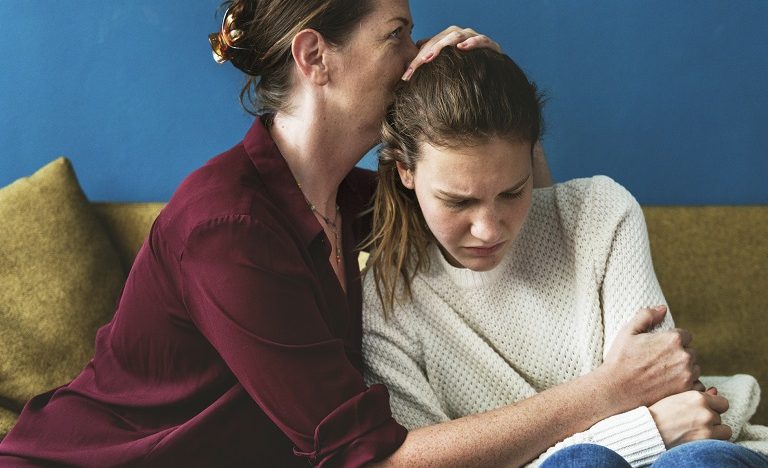When you first learn that your child is a victim of trafficking, you may experience denial and confusion. Although there is no "typical" victim, you might still question how this could happen to your child. The entire family may have feelings of anger, sadness, guilt, shame, fear and even a sense of loss.
With support, a family can cope together with the impact of sex trafficking.
Impact on caregivers
Whether your child has left or is still being trafficked, you may find yourself constantly thinking about their situation. It can be very stressful trying to keep it together for the family as you strive to regain some sense of normalcy.
Some common emotional responses can include:
- Questioning parenting abilities and self-blame.
- Blaming spouses, partners or other family members for the circumstances.
- Being hyper-vigilant with the victim or their siblings.
- Experiencing fear of judgment and worry about what to tell friends, neighbours or extended family.
Self-care for caregivers
While some survivors want to reconnect with their families and return home, others become isolated from their families because of their trafficking experience.
Accepting the loss and inability to control the situation can be difficult. Here are some simple self-care tools that can help you in this process:
- Challenge any negative thoughts by engaging in positive self-talk. For example, "I did the best I could to help my child," "I accept the things that I can't control," or "When I do feel ready, I know I can choose to reach out to others for support."
- Seeking support and practising self-care can help address your feelings, reduce stress and help you support your child better.
- There may come a time when it's necessary to give yourself a "time out" to be able to move forward.
You don't have to do this alone. There are organizations that can help you develop coping strategies, particularly if you're feeling anxious, depressed, withdrawing from others or finding it difficult to eat and sleep.
You can call the confidential 24-7 Canadian National Human Trafficking Hotline at 1.833.900.1010 to connect with the supports available in your region.
Impact on the family
Family members need to feel supported, both while a child is in a trafficked situation and if he or she returns home.
Knowing what behaviours to expect and being prepared to manage them ensures everyone in the family feels safe, valued and supported.
Safety planning
In a situation where a child is being trafficked and is not ready to leave, it may be helpful to engage in planning that helps to ensure the safety of all family members.
It's important to create expectations, predictability and a sense of safety and trust that your child and the entire family can rely on. You may tell your child that while the doors for communication will remain open, there will also be boundaries. By setting boundaries you are taking control, and this could include rules for:
- A curfew.
- Bringing strangers home.
- Using substances in the house.
If your child is still living with you, this might mean moving them to another home to ensure the safety of other family members.
You can decide the approach you wish to take moving forward. The bottom line is different for every family.
Sibling relationships
Siblings are often impacted the most when exposed to the trauma of sex trafficking. Understanding the complex emotions and repercussions can help to provide informed support.
Here are some of the feelings and behaviours you may see in the sibling of a victim of trafficking:
- Like you, they may have feelings of anger, guilt, neglect, sadness, fear and loneliness.
- They may feel responsible in some way and believe it's their fault this happened.
- They might be afraid for their sibling and themselves.
- Conflict may arise between siblings if the sibling that is or was trafficked becomes the driver of the family dynamic, or is seen to be given preferential treatment.
- Siblings may feel invisible and become resentful. They may be angry about the chaos created in the family.
Caregivers and other trusted adults can play a significant role in comforting siblings through these tough moments.
It is helpful not to force siblings to forgive, support or reconcile with their sibling who has been trafficked. They need to decide when they're ready. This can help minimize feelings of resentment, frustration or anger, and avoid them seeking attention elsewhere.
Managing milestones
Sometimes survivors do not return home and coping with milestones like Mother’s Day, birthdays or holidays can be especially difficult. For these kinds of milestones, it can be helpful to keep in mind that they can be emotional times and prepare extra support and self-care in advance.
Finding help
Finding additional support can help families deal with the roller-coaster of emotions that can come along when a child is being or has been trafficked.
This could mean connecting with other family members, someone who has been through similar circumstances or reaching out to professionals in the community.
Call the Canadian Human Trafficking Hotline at 1.833.900.1010 to find local community resources that can help families impacted by trafficking.



